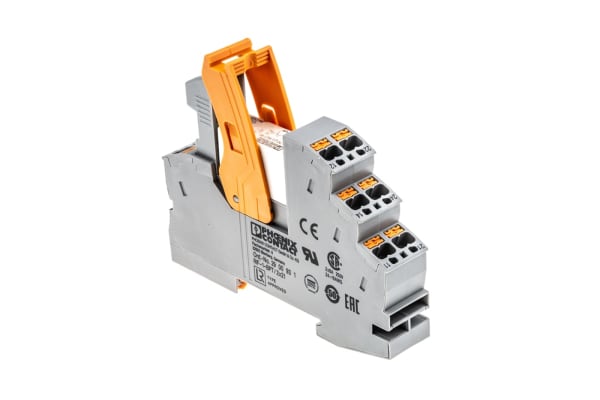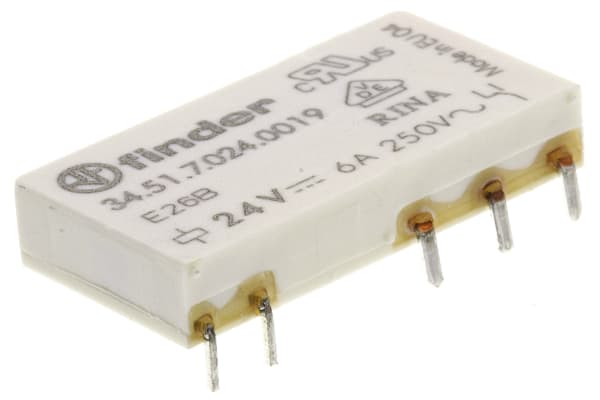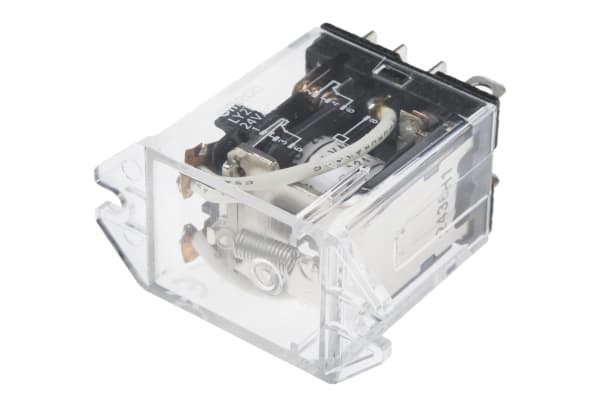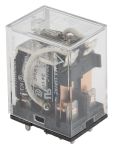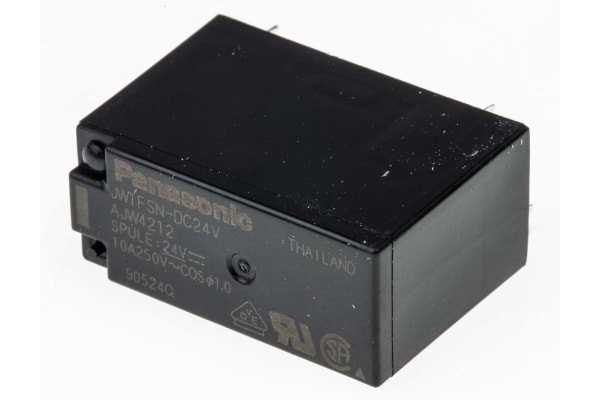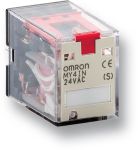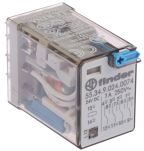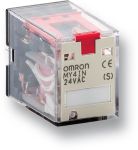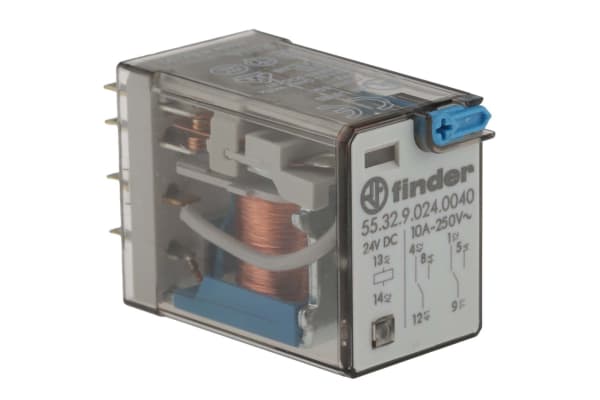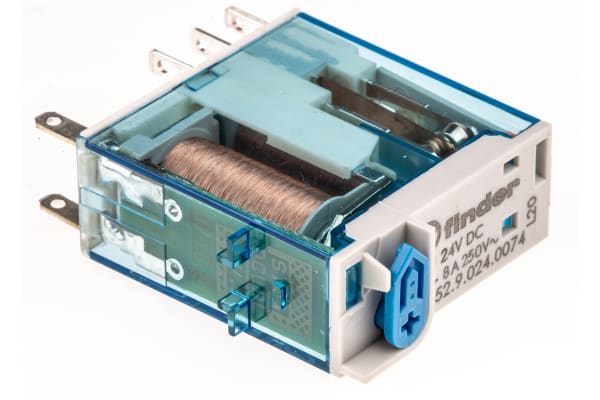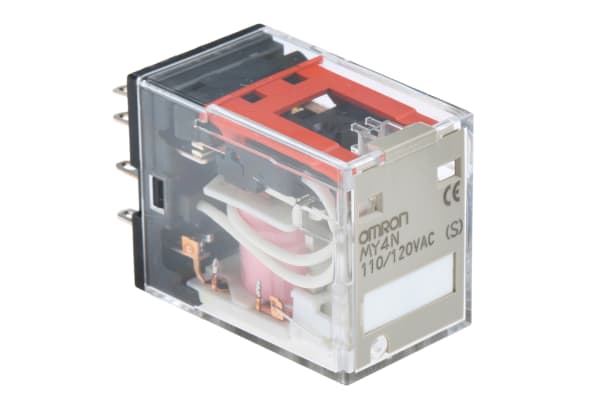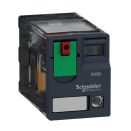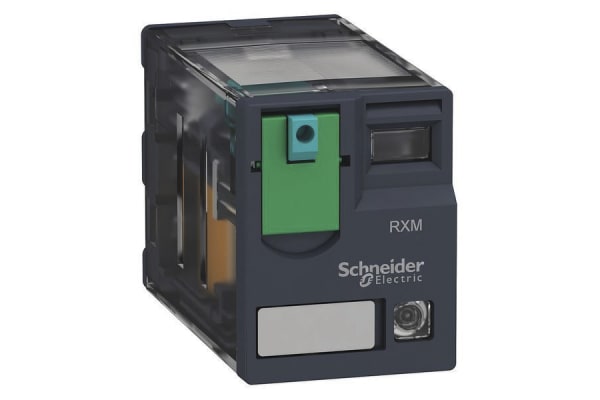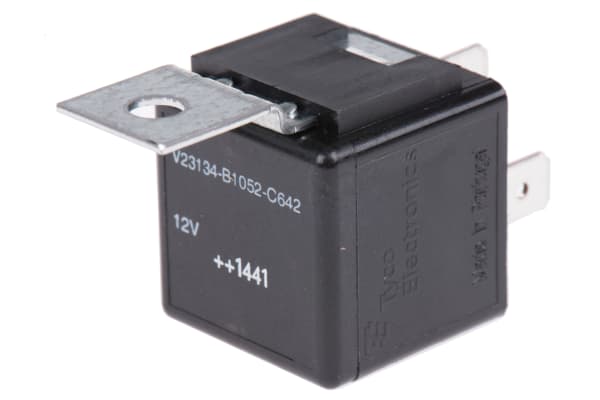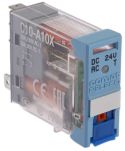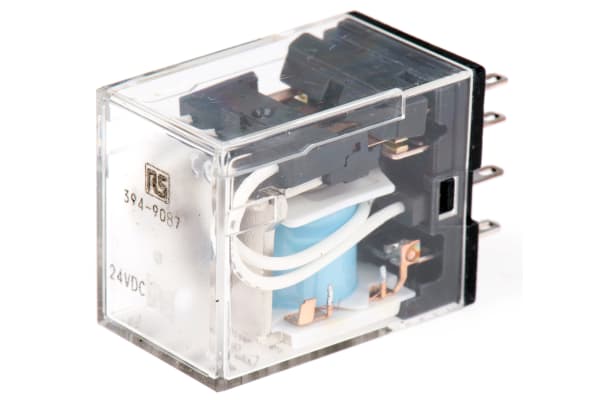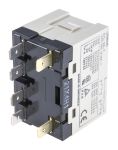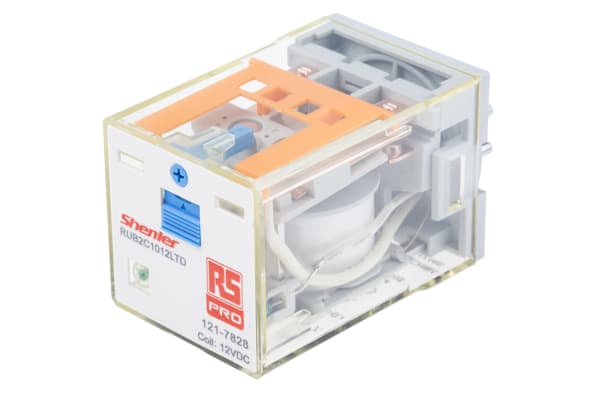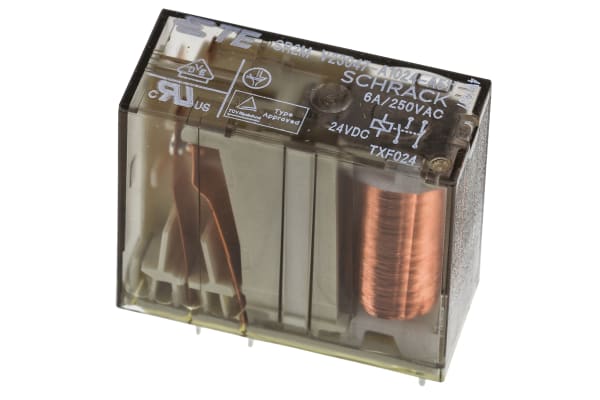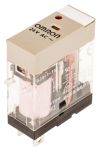Non-Latching Relays
Relays are electrical switches that are operated by electrical impulses with the primary function to open and close a circuit, they can also be referred to as industrial switches. There are 2 main types available, latching and non–latching relays.How do non-latching relays work?Non-latching relays are in a normally closed (NC) position and will stay in this state without power. When power passes through the circuit, the relay switched to a normally open (NO) position by using an internal coil to generate a magnetic force, holding this NO position. Once the current is turned off, it returns to the NC position. This makes non-latching relays well suited to push-button applications like keyboards and micro-controller input buttons.What are non-latching relays used for?Non-latching relays are highly durable and versatile components, making their performance long lasting and suitable for use in a wide range of applications, such as:Automotive enginesHousehold appliancesIndustrial machineryMedical equipmentTelecommunications equipmentWhat is the difference between latching and non-latching relays?Both types of relays in similar in design and function, however, a significant difference between them is that a latching relay will remain in the last position it when it was last powered, whereas a non-latching goes back to its normal position. This makes each more type of relay suitable for different applications. Considerations when selecting a relayWhen choosing a relay, it is important to consider a number of specifications to ensure it is fit for purpose, some factors include:Coil voltage – the required voltage to actuate the switching mechanism. If a voltage is too high this could damage the components, if it is too low then it will not actuate. Contact configuration – This is the state the contacts are in without power. For example SPST, single pole single throw.Contact material – the relay contacts are available in many materials that have certain properties. Common materials are gold, silver, tin oxide and nickel Coil power – the amount of power (watts) the coil operates at. This must match the power in the circuit for correct function. Coil resistance – the amount of resistance (ohms) in the circuit that the coil creates.
-
RS PRO, 24V ac Coil Non-Latching Relay DPDT, 10A Switching Current Plug In, 2 Pole
IDR151,461.16 -
Phoenix Contact, 24V dc Coil Non-Latching Relay DPDT, 10mA Switching Current DIN Rail, 2 Pole, 2903334
IDR193,417.16 -
Finder, 24V dc Coil Non-Latching Relay SPDT, 6A Switching Current PCB Mount Single Pole, 34.51.7.024.0019
IDR155,866.54 -
Omron, 24V ac Coil Non-Latching Relay DPDT, 10A Switching Current Plug In, 2 Pole, LY2F-AC24
IDR193,941.61 -
Omron, 24V dc Coil Non-Latching Relay SPDT, 6A Switching Current DIN Rail Single Pole, G2RV-SR700 DC24
IDR315,509.12 -
Omron, 24V dc Coil Non-Latching Relay DPDT, 10A Switching Current PCB Mount, 2 Pole, LY2-0-DC24
IDR180,201.02 -
Panasonic, 24V dc Coil Non-Latching Relay SPDT PCB Mount Single Pole, JW1FSN-DC24V
IDR228,135.75Pack (1 Pack of 5) -
Omron, 110/120V ac Coil Non-Latching Relay 4PDT, 3A Switching Current Plug In, 4 Pole, MY4IN-GS 110/120VAC
IDR191,843.81 -
Finder, 24V dc Coil Non-Latching Relay 4PDT, 7A Switching Current Plug In, 4 Pole, 55.34.9.024.0074
IDR208,940.88 -
Omron, 24V dc Coil Non-Latching Relay 4PDT, 3A Switching Current Plug In, 4 Pole, MY4N-GS 24VDC
IDR192,158.48 -
Finder, 24V dc Coil Non-Latching Relay DPDT, 10A Switching Current Plug In, 2 Pole, 55.32.9.024.0040
IDR184,921.07 -
Finder, 24V dc Coil Non-Latching Relay DPDT, 8A Switching Current Plug In, 2 Pole, 46.52.9.024.0074
IDR177,998.33 -
Omron, 12V dc Coil Non-Latching Relay DPDT, 10A Switching Current Plug In, 2 Pole, MY2N-D2 12DC(S)
IDR223,730.37 -
Omron, 110/120V ac Coil Non-Latching Relay 4PDT, 5A Switching Current Plug In, 4 Pole, MY4N 110/120AC(S)
IDR116,008.34 -
Schneider Electric, 125V dc Coil Non-Latching Relay 4PDT, 8A Switching Current Plug In, 4 Pole, RXM4AB2GD
IDR201,913.25 -
Schneider Electric, 48V ac Coil Non-Latching Relay 4PDT, 8A Switching Current Plug In, 4 Pole, RXM4AB2E7
IDR195,410.07 -
Schneider Electric, 24V dc Coil Non-Latching Relay 4PDT, 8A Switching Current Plug In, 4 Pole, RXM4AB3BD
IDR182,298.82 -
TE Connectivity, 12V dc Coil Automotive Relay SPNO, 40A Switching Current Plug In Single Pole, V23134B1052C642
IDR188,172.66 -
Releco, 24V dc Coil Non-Latching Relay SPDT, 10A Switching Current Plug In Single Pole, C10-A10X / DC 24 V
IDR208,101.76 -
RS PRO, 24V dc Coil Non-Latching Relay 4PDT, 5A Switching Current Plug In, 4 Pole
IDR195,829.63 -
Omron, 12V dc Coil Non-Latching Relay DPNO, 25A Switching Current Panel Mount, 2 Pole, G7L-2A-T 12DC
IDR196,039.41 -
RS PRO, 12V dc Coil Non-Latching Relay DPDT, 10A Switching Current Plug In, 2 Pole
IDR170,865.81 -
TE Connectivity, 24V dc Coil Non-Latching Relay SP-NO/NC, 6A Switching Current PCB Mount Single Pole, V23047-A1024-A511
IDR206,213.74 -
Omron, 24V ac Coil Non-Latching Relay SPDT, 10A Switching Current Plug In Single Pole, G2R-1-SN 24AC(S)
IDR237,470.96




